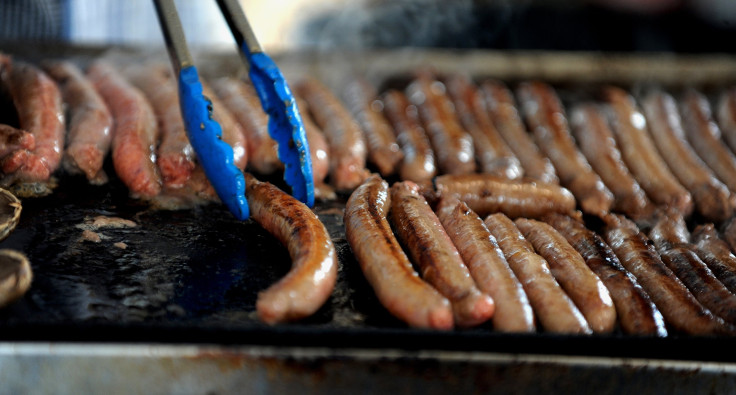WHO Red Meat Cancer Report: Findings Comparing Sausages To Cigarettes 'A Farce,' Australian Minister Says

A day after the release of a World Health Organization (WHO) report linking consumption of red and processed meat to cancer, Australia -- one of the world’s biggest exporters of red meat -- dismissed the report as “a farce.” The report, based on an evaluation by International Agency for Research on Cancer (IARC), classified processed meat in its Group 1 category of carcinogens -- along with alcohol and tobacco -- and red meat as “probably carcinogenic.”
“No, it [processed meat] shouldn't be compared to cigarettes and obviously that makes the whole thing a farce -- comparing sausages to cigarettes,” Australian Agriculture Minister Barnaby Joyce reportedly said Tuesday. “If you got everything that the WHO said were carcinogenic and took it out of your daily requirements, well, you are kind of heading back to a cave.”
The IARC analyzed 800 studies from around the world and found that daily consumption of even 50 grams of processed meat -- or about two strips of bacon -- increases the risk of colorectal cancer by 18 percent. The report concluded that given the large number of people who consume processed meat globally, the impact on cancer incidence is quite significant.
“These findings further support current public health recommendations to limit intake of meat,” Christopher Wild, director of IARC, said, in a press release.
According to an estimate by Cancer Council Australia, in 2010, more than 2,600 bowel cancer cases diagnosed in the country were attributable to processed and red meat consumption. Additionally, U.K.-based World Cancer Research Fund has also, for several years, warned against overconsumption of red meat, citing “strong evidence” that eating red meat or processed meat increases the risk of bowel cancer.
However, since the release of the report, representatives of the meat industry across the world have sought to rubbish the findings. While Meat and Livestock Australia -- which carries out research for the Australian red meat and livestock industry -- said red meat such as beef and lamb are needed “to keep the body and brain functioning well,” the North America Meat Institute in the U.S termed the conclusions of the WHO report a “dramatic and alarmist overreach.”
“Classifying red and processed meat as cancer ‘hazards’ defies both common sense and numerous studies showing no correlation between meat and cancer,” the organization said, in a strongly-worded statement released Monday. “Scientific evidence shows cancer is a complex disease not caused by single foods and that a balanced diet and healthy lifestyle choices are essential to good health.”
© Copyright IBTimes 2024. All rights reserved.






















